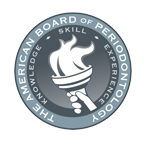Full mouth dental implants are made to be durable in addition to having the same appearance and functionality as natural teeth.Additionally, they are more sturdy and comfortable than traditional dentures, allowing you to eat some meals that may be challenging to chew and bite with traditional dentures.Full mouth dental implants can restore all of your lost teeth as well as portions of their roots if you are toothless.For more info visit https://premierperiodontics.com/
Advantages of full mouth dental implants
Full mouth dental implants also avoid the time-consuming upkeep associated with traditional dentures, which need to be taken out and cleaned after each meal and soaked overnight.
Instead, dental implants just require the regular brushing and flossing techniques advised for natural teeth to be cared for.Additionally, your bone will be better conserved since full mouth dental implants will replace some of your tooth roots.
The bone that formerly encircled the tooth roots may start to degenerate if you wear traditional dentures.
Recession of the jawbone and an ugly grin will result from this.
Dental implants, on the other hand, fuse with your jawbone, aiding in maintaining bone health and your natural smile.
How will full mouth dental implants be placed?
Full mouth dental implants consist of three parts:
The implants, which are inserted into your jaw and resemble screws or cylinders,
the prosthetic (artificial) teeth, which resemble healthy, natural teeth in both appearance and performance.
The replacement teeth may be connected to the implants thanks to the abutments, which are put into the implants.
The initial phase of the surgery often involves using a scalpel to cut two gum flaps that are then peeled aside to reveal the jawbone beneath.
The implant will then be implanted when a hole is made in the jawbone to accommodate it.
For each implant, the procedure will be repeated.
It could be feasible to cover the implant sites with temporary teeth.
If not, each implant will have a temporary healing cap placed onto the top to isolate the inside from the oral environment.The two gum tissue flaps will then be moulded, adjusted, and trimmed back over the jawbone and over the healing cap of the implant.
A few sutures will be placed to hold the gum tissue in place; the sutures will be removed in seven to ten days.The implants and bone will be given the next two to six months to bind and develop anchors for your new teeth.
The implants will then need to be exposed, the temporary healing caps (or temporary teeth) will need to be taken off, and the abutments will need to be attached.
After this surgery, your gums will be allowed to recover for a few weeks.
Last but not least, the abutments will be connected to complete bridges or full dentures that imitate your original teeth.
You will soon regain confidence in your smile, as well as in your capacity to eat and talk regularly.
For more information visit https://premierperiodontics.com/ or call us at (267) 908-4867.









